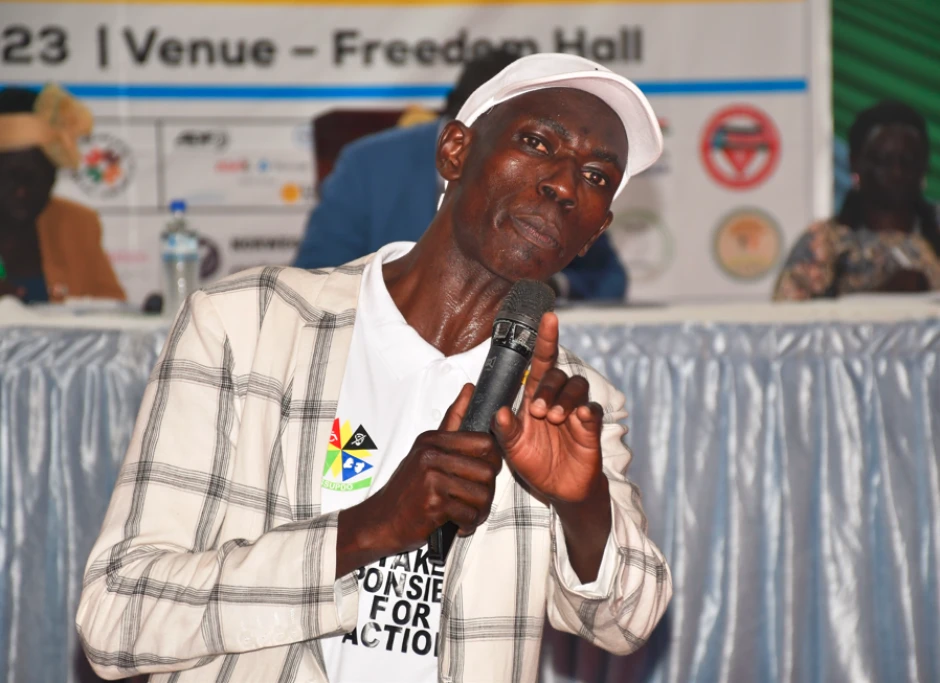
Edmund Yakani, CEPO executive director, | Credit | Daniel Garang Deng/TRC
South Sudanese human rights activist Edmund Yakani has condemned the ongoing U.S. government's deportation of South Asian nationals convicted of serious crimes to South Sudan, despite none of them holding South Sudanese citizenship.
Yakani, Executive Director of Community Empowerment for
Progress (CEPO), questions the rationale behind such deportations:
“We have seen the new administration of the U.S. deport
individuals who are identified as individuals who have committed crimes of high
level that are associated with rape and other crimes. They are Vietnamese and Burmese
nationals. They are not South Sudanese. They don't bear any South Sudan
identity,” said Yakani.
Yakani statement follows reports that the U.S. deported eight individuals convicted of severe crimes, including murder and child sex abuse, to South Sudan, even though only one of them is a native of the country. He further emphasized the need for transparency and accountability in such matters:
“If there's any agreement that was made between Juba and
Washington for South Sudan to be a dumping ground of individuals who are in
conflict with the law in U.S. to South Sudan, we need an explanation for that
and need to be done in a transparent manner,” he demanded.
In recent months, the U.S. and South Sudan have been
embroiled in diplomatic tensions over the importation of an individual named
Kinte Makula, whom South Sudan initially refused entry but later allowed in
after the row escalated. This has raised questions about the deportations being
carried out by the U.S. administration to South Sudan.
A U.S. federal judge ruled that the Trump administration
violated a court order by attempting to deport Asian migrants to South Sudan
without allowing them due process.
“We are human enough like any other human in the world like
U.S. citizens. We are not a dumping ground for criminals who are in conflict
with the law and who have committed serious crimes in U.S. to be dumped to us
in South Sudan,” Yakani added, questioning if the same can be done to the U.S
“If we have individuals who are non-U.S. citizens in South
Sudan who are in conflict with the law in South Sudan, can we dump them to
U.S.? Are we less society in the world of democracy, in the world of human
rights?”
As the situation unfolds, with the South Sudan Ministry of Foreign Affairs remaining silent, Yakani calls for clarity and adherence to international legal standards.